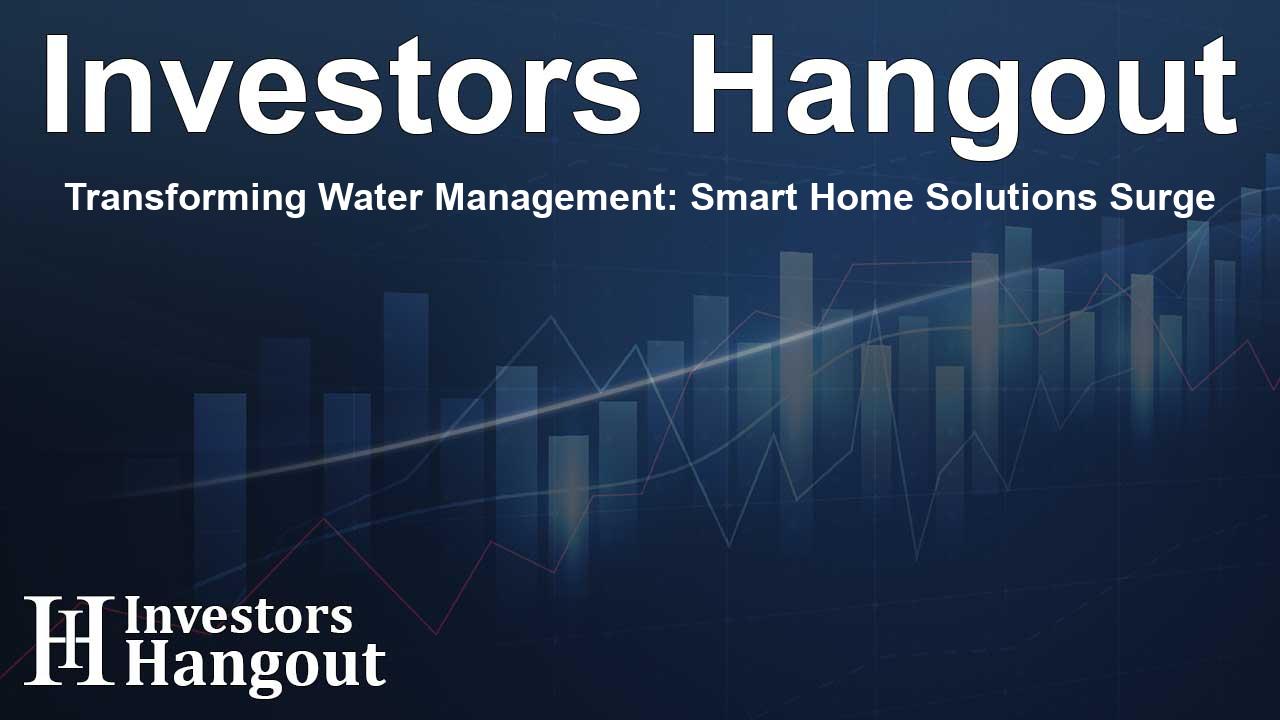Transforming Water Management: Smart Home Solutions Surge

Significant Growth in Smart Home Water Sensor Market
The smart home water sensor and controller market is experiencing an impressive growth trajectory. Recent estimates suggest an anticipated increase of USD 88 million from 2025 to 2029. This growth is primarily driven by a surge in water leakage incidences and mounting repair costs, which are prompting homeowners to adopt smart solutions for better water management.
Market Drivers and Trends
Increasing awareness regarding water conservation and the importance of efficient management systems has fueled the demand for smart home water sensors. Homeowners are now more inclined to implement advanced technology to detect leaks promptly, saving both water and costs associated with potential damage. The integration of virtual assistants and voice commands further enhances user experience, offering hands-free control.
Technological Innovations
Continuous advancements in wireless connectivity technologies such as Z-Wave and Wi-Fi 6 are paving the way for smarter homes. These technologies not only facilitate real-time alerts for leak detection but also provide comprehensive solutions for water management. With the integration of IoT, smart sensors can now communicate with each other, optimizing water usage and ensuring sustainable practices.
Insurance Companies Encouraging Smart Solutions
Insurance firms are increasingly promoting the adoption of IoT-enabled water sensors as a preventive measure to minimize claims related to water damage. By implementing smart technology, homeowners can reduce risks and potentially lower their insurance premiums. This economical advantage further incentivizes the adoption of smart home solutions.
Challenges Facing the Market
Despite significant opportunities, the high cost of smart home water sensors remains a challenge for many consumers. Standard prices range from USD 55 to USD 100 for basic sensors, and complete systems can reach from USD 500 to USD 1,000. Such expenses may deter price-sensitive homeowners who might prefer traditional leak detection methods.
Focus on Affordability
To cater to a broader audience, manufacturers are exploring strategies to reduce costs while maintaining quality. This focus on affordability is crucial for capturing a larger segment of budget-conscious consumers.
Segment Overview and Future Outlook
The market segmentation for smart home water sensors includes various types such as Wi-Fi technology, which is widely popular due to its ease of integration and cost-effectiveness. The applications for these devices extend to both residential and commercial sectors, with an emphasis on enhancing efficiency and convenience.
Wi-Fi Technology as a Key Player
Wi-Fi technology stands out in the market, allowing seamless connectivity with multiple smart devices. By facilitating easy installation and compatibility, Wi-Fi sensors and controllers have become a preferred choice among consumers. Vendors are introducing innovative products featuring these technologies to meet the market's demands.
Research Analysis
As the market evolves, the integration of AI technology is reshaping how consumers manage their water systems. AI-driven solutions provide insights into usage patterns, promoting conservation through predictive analytics and real-time monitoring. These advancements not only simplify water management but also underscore the importance of sustainability.
Future Growth Expectations
Looking ahead, the smart home water sensor market is projected to continue its upward trend as more homeowners prioritize automation and efficiency. With ongoing innovations and heightened consumer awareness, the sector is poised for sustained expansion.
Frequently Asked Questions
What is driving the growth of the smart home water sensor market?
Key drivers include increasing water leakage incidents, rising repair costs, and growing consumer awareness about water conservation.
How are insurance companies involved in the market?
Insurance companies promote the adoption of IoT-enabled water sensors to help homeowners minimize water damage claims and potentially reduce premiums.
What are the main challenges in adopting smart home water sensors?
The principal challenge is the high cost associated with smart home water sensors, which may deter some consumers from transitioning from traditional methods.
What technologies are influencing the market?
Wireless technologies like Z-Wave and Wi-Fi 6 are crucial for enabling real-time communication and monitoring in the smart home ecosystem.
What is the future outlook for smart home water management?
The market is expected to grow as more homeowners seek automation, efficiency, and sustainable solutions for water management.
About The Author
Contact Caleb Price privately here. Or send an email with ATTN: Caleb Price as the subject to contact@investorshangout.com.
About Investors Hangout
Investors Hangout is a leading online stock forum for financial discussion and learning, offering a wide range of free tools and resources. It draws in traders of all levels, who exchange market knowledge, investigate trading tactics, and keep an eye on industry developments in real time. Featuring financial articles, stock message boards, quotes, charts, company profiles, and live news updates. Through cooperative learning and a wealth of informational resources, it helps users from novices creating their first portfolios to experts honing their techniques. Join Investors Hangout today: https://investorshangout.com/
The content of this article is based on factual, publicly available information and does not represent legal, financial, or investment advice. Investors Hangout does not offer financial advice, and the author is not a licensed financial advisor. Consult a qualified advisor before making any financial or investment decisions based on this article. This article should not be considered advice to purchase, sell, or hold any securities or other investments. If any of the material provided here is inaccurate, please contact us for corrections.
